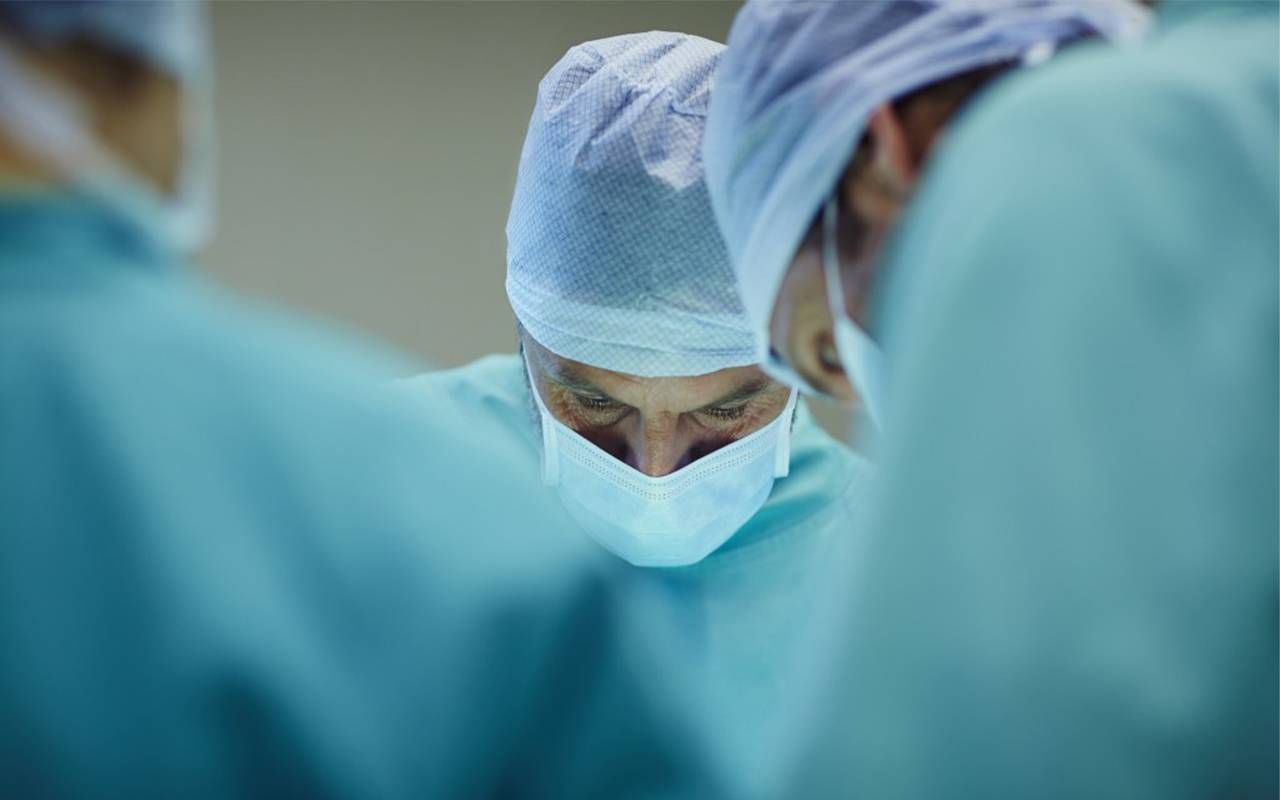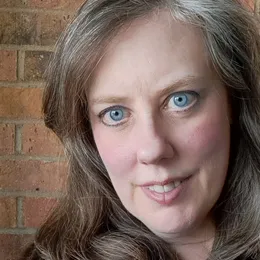Is 50 Too Old to Become a Living Organ Donor?
By donating a kidney to my niece, I was able to help her and better appreciate my own health as well
In February 2022, my brother shared some bad news with our family. His youngest daughter had been hospitalized with high blood pressure, nausea and fatigue. Only 25 years old, her sudden hospitalization came as a shock.
The hospital ran tests, and the results were grim. My niece's diagnosis was chronic kidney disease; IgA nephropathy, or Berger's disease. The disease occurs when an antibody called immunoglobulin A builds up in the kidneys, resulting in their inability to filter waste.

Unfortunately, there is no cure; the long-term prognosis is usually end-stage kidney failure. It wasn't long before she was put on dialysis. But the best long-term solution would be a new kidney. According to the United Network for Organ Sharing, more than 100,000 people in the U.S. require a lifesaving organ transplant. More than 58,000 are on an active waiting list.
I was willing to be proved wrong, certainly if it meant my young niece could get a second chance at life.
My niece was told a kidney from a deceased donor could take at least 3 to 4 years. But through a living donor, the wait may be a matter of months. Several family members volunteered to test to be her donor, including me. But at 49, I wondered if I was too old, regardless of my health.
Learning About Donation
I knew very little about living organ donation. Then, as my niece began researching transplant programs in our area, my brother shared some resources about living donation with the family. Many transplant programs require potential donors to be at least 18, but the upper age limit can vary from 65 or 70 to no limit at all. Still, I worried my age might disqualify me.
The culprit may have been internalized ageism and the stage of life I was coming out of when I began testing. Two years earlier, I had gone through menopause. More than bringing hot flashes, insomnia and unflattering weight gain into my life, menopause did a number on my self-esteem.
I began to believe it was all downhill from here — like I was officially invisible, irrelevant and on the losing side of health from here on out. But I was willing to be proved wrong, certainly if it meant my young niece could get a second chance at life.
I began an evaluation that revealed more about my current health than I ever thought possible to know in just a few months.
After initial testing proved I was a blood match for my niece, I began an evaluation that revealed more about my current health than I ever thought possible to know in just a few months. This included a 24-hour urine collection, chest X-rays, stress test and EKG, abdominal CT scan, 24-hour blood pressure monitoring, and mammogram and pap smear.
Mercifully, I was saved from the experience of a colonoscopy by a negative Cologuard test. Nevertheless, there were more blood draws than I could count, testing me for every illness and condition under the sun (as my results rolled in by email, I was amused to see a pregnancy test had been included). In addition, I was required to meet with the transplant surgeon, a nutritionist and a psychologist.
A living donor advocate, social worker and transplant coordinator were also on hand to help me through the evaluation process and answer my questions. Finally, in the fall of 2022, I was approved. By the time of the surgery, my niece had turned 26, and I had turned 50.
Happily, the transplant went well. My kidney woke up immediately in my niece, "working like gangbusters," as one of the surgery team told me afterward. We both had fairly easy recoveries. Back home, I joined several online living donor groups to help navigate life with one kidney. Not only did I discover many live donors around my age, but plenty were even older when they donated.
According to the Organ Procurement & Transplantation Network (OPTN), which began collecting data for organ donation in the U.S. in 1988, the average age for living donation is 41. The oldest age at the time of donation thus far is 84 for kidneys and 73 for liver.
The bonus was discovering life — and health — still had potential for me, too.
Per OPTN data, out of 5,863 living kidney donations in 2022, nearly one-third were from donors aged 50 to 64, second only to those aged 35 to 49. But even among the smallest donor age group, the number of donations is significant. There were 365 living kidney transplants from donors aged 65 and up last year, which means that many more recipients got a second chance at life thanks to the courage and generosity of their donors.
Of course, it's true that our bodies look and feel significantly different at 50 or 55, or 65 than they did at 20 or 25, or 35. But for living organ donation, there may be advantages to being older. For example, for Dr. Divya Jain, a transplant nephrologist at Loyola University Medical Center in Illinois, which my niece chose as her transplant center, it is much harder to predict the lifetime risk of end-stage kidney disease in a younger donor.
"Truthfully, older-aged donors who are healthy are likely to stay healthy, as they've committed to their lifestyle and aren't expected to change that compared to younger donors. Many more factors can change for a 20-year-old over 65 years than for a 65-year-old in 20 years," Jain said.
Jain notes that surgical risks are minimally higher due to age. "The remaining kidney is not expected to hyperfilter as much as in a younger living donor, leading to a higher change in the kidney function than with a lower donor. But again, this is a small risk as it's not necessarily going to lead to end-stage kidney disease."
Jain suggests that potential donors ask their transplant doctor or donor team how their remaining kidney function will affect their life expectancy and quality of life. Transplant programs look at risks and benefits to the donor, and the donation and recovery process is a case-by-case matter.
Since the donation, I've been motivated to better care for my remaining kidney and whole self.
The best advice passed onto me came from a fellow donor. Susan Dubuque was 65 when she donated her kidney to a stranger in 2018. She learned about living donation while interviewing donors and recipients for a marketing project to promote the 60th anniversary of VCU Health Hume-Lee Transplant Center in Virginia.
The story of two non-directed kidney donors – donors who do not have a particular recipient in mind – captivated her attention. They inspired her to register for donations, too. Like me, Susan had concerns about her age. On the one hand, she was active and in good health, having run ten marathons since her first at age 54.
On the other, she was unceremoniously kicked off the bone marrow registry when she turned 60. But at the outset of her health evaluation to donate her kidney, she was told age didn't matter, but mileage did. She felt a similar validation as I did after being approved to donate, telling me, "We got a certificate that says 'good for another 10,000 miles' when we passed those tests."
Six months after the surgery, Susan met her recipient, a 59-year-old woman with whom she stays in touch. She thinks many people are less likely to take risks when they have young children or a full-time job, as she did in her 30s. Being an older donor meant she was at a place in her life and career where she could take time off without financial burden.
Since the donation, I've been motivated to better care for my remaining kidney and whole self. I've started working out more and rebuilding my strength through yoga. The best part about donating was giving my young niece a chance to go on with her life plans. The bonus was discovering life —and health — still had potential for me, too.


